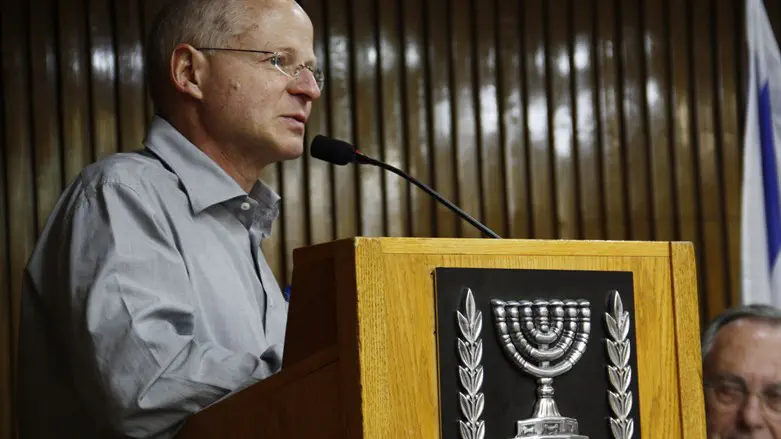
Noam Schalit, the father of Gilad Schalit, passed away Wednesday after a long battle with leukemia.
His funeral will be held tomorrow at 1:30 PM in the Mitzpe Hila Cemetery.
Schalit and his wife Aviva waged a years-long struggle to secure their son's release after he was kidnapped by Hamas terrorists and taken into Gaza in 2006. Gilad Schalit was released on October 18. 2011 in a prisoner exchange deal which saw Israel release 1,027 prisoners, including many terrorists with blood on their hands.
Last year, ahead of the tenth anniversary of the release of his son, Noam was interviewed by Channel 12 News about Gilad's return the deal which secured it.
"I try not to go back and remember the time when Gilad was in captivity, but sometimes it comes up," said Noam, who lost his twin brother Yoel in the Yom Kippur War.
Schalit rejected criticism of his son's conduct during the incident in which he was captured. “His weapon wouldn’t have done him any good,” he said. “If he had emerged with his weapon in his hand, and started firing, he would have been killed on the spot. Some people wrote back then that nevertheless, he should have grabbed the turret gun and started firing in all directions – but that wasn’t the situation at all,” he added, noting that at the time of his capture, his son had only been in the army for a year.
“He could have tried something, but it would have been suicidal. And there’s no doubt that a large number of politicians at the time would have been very happy to see Gilad returning home in a coffin, draped with the Israeli flag,” he noted. “To their great disappointment, that didn’t happen.”
On the question of whether it was right to release such a large number of terrorists in return for his son – 1,027 terrorists in all, many of whom returned to their former activities after their release – Noam Shalit diverted any suggestion of blame from himself and pointed the finger at the government.
“There are more than enough Hamas and Islamic Jihad terrorists available to imprison,” he said, “and even if those specific terrorists hadn’t been released, there are any number of others willing and able to commit terrorist acts.
“We weren’t the ones who told the government who to release in return for Gilad,” he added. “We launched a campaign to pressure the government to free him, but we never tried to tell anyone how to achieve that. If the government back then failed to exert pressure on Hamas in other ways, then there was no other way left to free Gilad other than to free terrorists in exchange. This was a serious failing on the part of the government, and the security system admitted that it did not manage to provide any alternative.”
